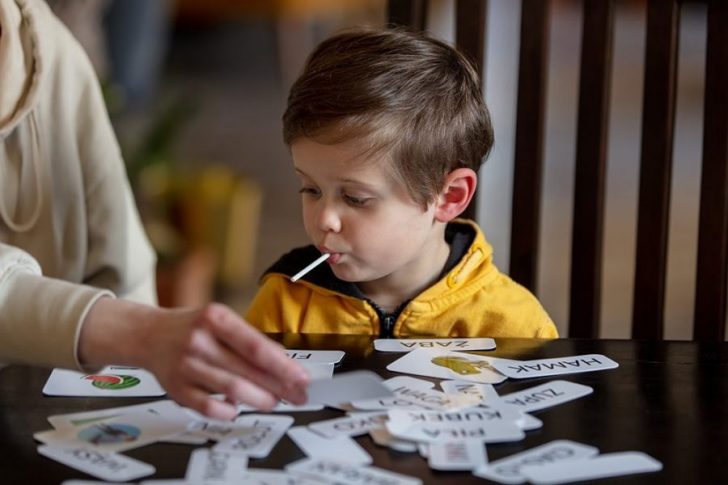Developmental delays refer to significant delays or differences in a child's physical, cognitive, communication, social, or emotional development compared to their peers. These delays can occur in various areas, significantly impacting a child's overall growth and functioning. Here are some common types of developmental delays in children, highlighting their characteristics and potential causes.
Speech and Language Delay
Speech and language delays are among the most common developmental delays in children. Children with speech delays may struggle to produce sounds, use appropriate grammar, or form words and sentences.
Language delays, on the other hand, involve difficulties in understanding and using language to communicate effectively. These delays can result from various factors, including hearing impairments, cognitive challenges, or environmental factors that limit exposure to language stimulation.

Linda Thunn/ Dmgaz | One out of 5 children will learn to talk or use words later than other children their age
Gross Motor Delay
Gross motor delays involve delays in developing large muscle groups and physical coordination. Children with gross motor delays may struggle with sitting, crawling, walking, or running.
Conditions like cerebral palsy, muscular dystrophy, or genetic disorders can cause these delays. Environmental factors, such as a lack of opportunities for physical activity or inadequate motor stimulation, can also contribute to gross motor delays.
Fine Motor Delay
Fine motor delays pertain to difficulties developing and coordinating small muscles, particularly those in the hands and fingers. Children with fine motor delays may struggle with tasks like holding a pencil, tying shoelaces, or buttoning clothing.
Fine motor delays can be caused by developmental coordination disorder or neurological impairments. Inadequate opportunities for fine motor skill development or limited exposure to activities that promote hand-eye coordination can also contribute to these delays.

Healthline/ Pinterest | Children with fine motor delay do not show interest in grasping objects
Cognitive Delay
Cognitive delays involve challenges in cognitive abilities, including thinking, reasoning, problem-solving, and memory. Children with cognitive delays may exhibit slower or different intellectual development patterns than their peers. These delays can be caused by genetic disorders, brain injuries, or environmental factors that impede cognitive development, such as poor nutrition, limited access to early stimulation, or exposure to toxins.
Social and Emotional Delay
Social and emotional delays refer to difficulties in the development of social skills and emotional regulation. Children with social and emotional delays may struggle to understand and interpret social cues, form relationships, express emotions appropriately, or manage their behavior.
These delays can result from autism spectrum disorder, attention deficit hyperactivity disorder (ADHD), or trauma. Environmental factors, such as neglect or inconsistent caregiving, can also contribute to social and emotional delays.

Shutterstock/ iStock | Long-term developmental delays are also called developmental disabilities
Sensory Processing Delay
Sensory processing delays involve challenges in how a child's brain processes and responds to sensory information, including touch, sound, sight, taste, and smell. Children with sensory processing delays may be oversensitive or under-sensitive to certain sensory stimuli. This can lead to difficulty regulating their responses and engaging in everyday activities. Sensory processing delays cbe associated with autism or sensory processing disorders.
Adaptive Delay
Adaptive delays pertain to difficulties in developing age-appropriate self-help and daily living skills. These skills include dressing, feeding, toileting, and personal hygiene. Children with adaptive delays may require additional support or have a slower rate of acquiring these skills than their peers.
These delays can be influenced by a range of factors, including cognitive impairments, physical disabilities, or limited opportunities for skill development.
It is important to note that developmental delays can vary in severity and impact from child to child. Early identification and intervention are crucial in supporting children with developmental delays. If parents or caregivers suspect that a child may have a developmental delay, they should consult with healthcare professionals who can conduct assessments and provide appropriate interventions.





